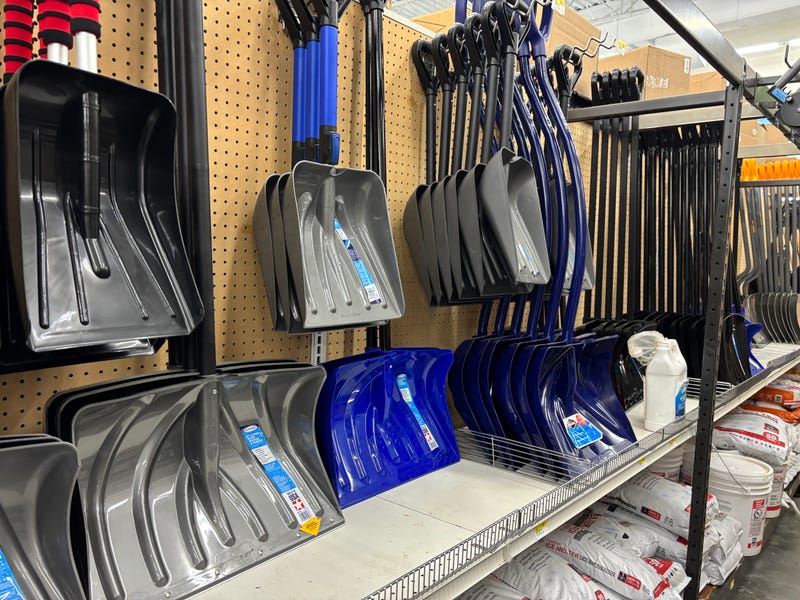
PHILADELPHIA (KYW Newsradio) — This week, in their regular segment answering listeners' medical questions, KYW's Michelle Durham and Medical Editor Dr. Brian McDonough discussed the dangers of shoveling snow for people who are not not in good physical condition.
Shoveling snow in low temperatures can be very stressful on the heart and musculoskeletal system, leading to potential injuries and soreness. He advises against doing it alone and suggests that lifestyle changes, including regular exercise and a healthy diet, are necessary to prepare the body for such physical exertion.
Symptoms of potential heart issues to look for after shoveling include chest pain, sweating, lightheadedness, and jaw pain. Women may experience vague symptoms. Immediate medical attention is crucial if any such symptoms arise.
Michelle Durham: With all the recent snowfall in the Philly area, I want to go over the dangers of shoveling it when you're not in good physical shape and you get out there and do that exertion. I think people underestimate its effect on the body. What are your thoughts?
Dr. Brian McDonough: I'm so glad you brought this up. The first thing is, we don't get out and exercise as much as we should. If you're kind of sedentary, the years are starting to add up, you don't get out that much. And even if you are exercising slightly, you can't underestimate how stressful shoveling snow in the cold is for your body.
It's that combination. You're already at greater stress at the lower temperature. Then you add pushing against the snow. Snow is very heavy, and if you're not used to exercising, you go out into the cold and you start exerting yourself in a way your body's not used to. It's really tough on the heart. In addition to the heart, we also have to worry about musculoskeletal system. In other words, you may slip fall, you can pull muscles, and you definitely are going to be sore a day later if you get through that episode, because these are not muscles you regularly use.
We tend to take it lightly — like, "Oh, I'll just clear the driveway. I'll save some money."
You're better off, if there's somebody in the neighborhood who wants to come around with a shovel to help, or if you get somebody to do it, I would definitely take advantage of that. Now.
There are going to be some they're going to say, "I want to do it myself, Dr. Brian." So this is an opportunity in the days before, to kind of prep your body a little bit — but is that enough time?
It does take weeks. You can't do it in two or three days. It has to be over time. But this could be a motivating factor. In other words, it's an indication that you're telling yourself, "Hmm, I need to do more." You know, it's all about lifestyle. It's changing your overall habits, not just one thing. And if you can do that, then you you can go out be very careful. You can go out and do it, but not with two or three or even a month of preparation. That's not enough.
So, all right: You shovel the snow, even though you weren't supposed to. And you come inside. What are the signs that something is amiss?
Any chest pain, obviously. But you know, when it comes to heart problems, you might get clammy or sweaty or have some G.I. issues, or you just don't feel right. You're lightheaded. Pain that goes up into the jaw. All of these things can be signs. And if you're female, women don't necessarily get any of those signs. It can be very vague. So it's definitely something to be concerned about. That's why I don't like people taking the risk,
